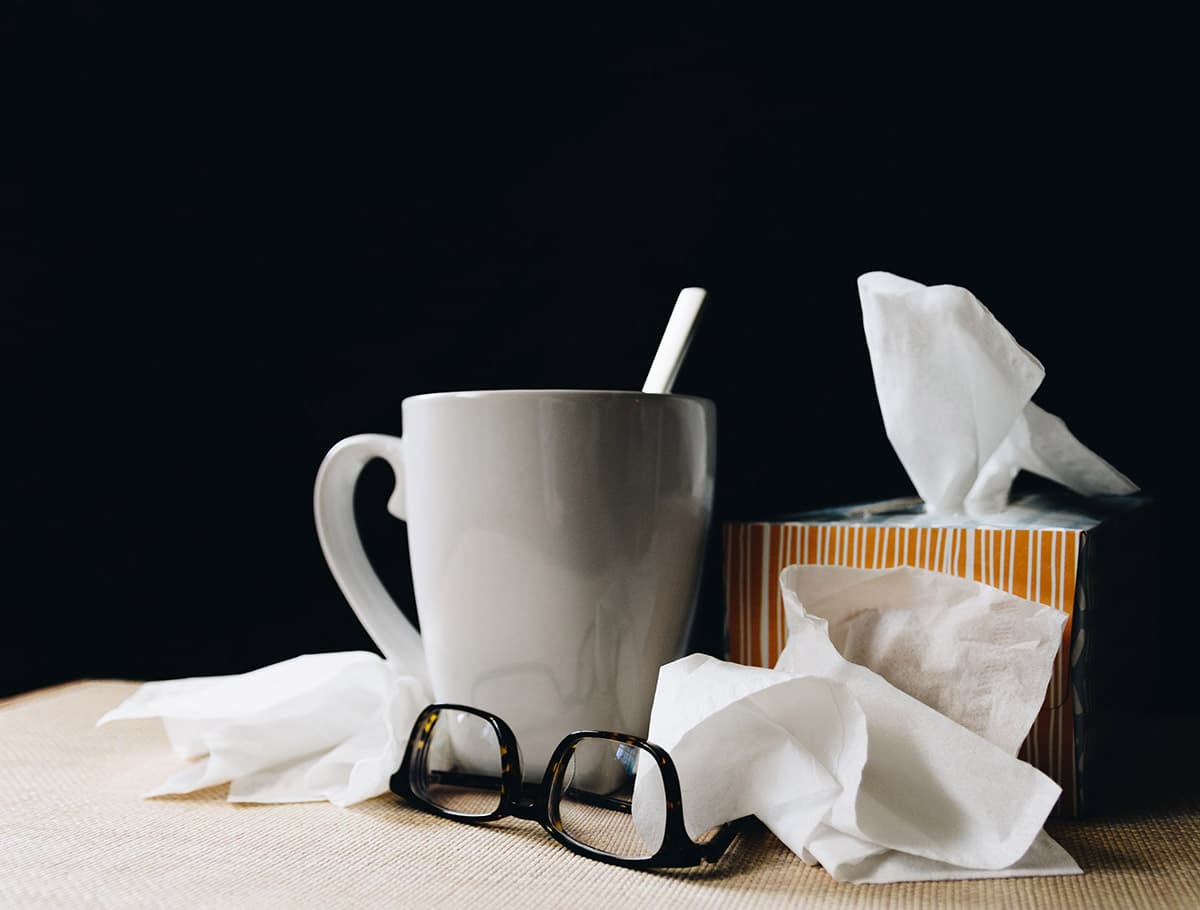
Spring is almost here! That means a host of new sickness, hay fever, allergies, and more. Want to keep your office in shape and your employees healthy? Or are you an employee low on sick time after a rough winter? This list of tips is for office employer and employees alike.
Cover Your Mouth
It’s easy to take for granted the basic courtesy of covering one’s mouth. When it’s a sneeze, a cough, or an accidental inhale of food or drink, it’s still gross to be showered with someone’s spit and germs. It would be easy to point the finger at those few office colleagues who don’t remember to cover their mouths. However, there’s another culprit: Us.
Sometimes, those of us with perfectly good manners forget to cover our mouths, and we excuse it. It was just allergies! I’m not sick! We say. While the allergies or dust might not be a sign of sickness in us, remember that we’re walking germ factories. Your average person has the potential for exposure to any number of bugs at home, from our kids, from our loved ones, and from our office.
That invisible sickness your kid brought home but you never caught? Your office coworker might not have your robust immunity, so always, always cover your mouth.
Sanitize the Office
We’ve talked before about the overuse of anti-bacterial products, and we stick by that. However, when someone is already sick, or when a sickness is going around, that’s the time we should be using disinfecting wipes.
Keep an eye on public areas around the office which could be a hotspot for germs, like office phones with many users. Bathroom door handles, water cooler push buttons (which people sometimes use because they’re coughing) and office kitchens can be some of the worst vectors for sickness around.
Take a moment of your day to sanitize your personal space in the office, and make sure the places you see as hotspots for germs get a once-over. Employers should keep up regular cleaning schedules and employ professionals to get the job done and stop sickness in its tracks.
Maintain Your Space
Clutter on an office desk is an inevitable fact of life in the corporate world. There are picture frames, personal touches, papers, staplers, pen jars, post-it stacks, and many other places for dust and germs to land. All those items can be a petri dish for germs under the right circumstances.
As a rule, try to keep your things where they need to be rather than out in the open just because they can be. Your post-it notes can probably go in a drawer – and if you don’t have one, consider getting a plastic drawer set for your desk! Pens and pen cups can be a mess of dust and a place for crumbs and dead skin to collect at the bottom of the cup. Put them away in your desk if you can. Frame your photos and your child’s artwork so that they can be disinfected if needed.
Remember that even if you’re not sick, dust and dirt can create an environment where sickness thrives. Agitation to your sinuses and throat might make a little abrasion that lets in the latest flu bug.
Stay Home if You’re Sick
These last two points are the most important. Stay home if you’re sick. It’s always tempting to use those seemingly plentiful sick days to take the afternoon off or play hooky. Save your sick days for when you really need them, and don’t risk sharing your sickness with everyone in your workspace.
While it’s easy to think, “But we all risk sickness when we work in a close environment,” it’s also unfair to the other people in your coworker’s life. Your coworker has no control of if you stay home while suffering through sickness, and they might have someone immunocompromised at home. Be kind to your coworkers and their families, and don’t bring the plague to work with you.
The most common response to this point is for an employee to say, “But I don’t get paid time off!” It’s a good thing we have one more point on this list, because employers should…
Support Employees Who Stay Home Sick
Bosses, this one is on you. It’s important for the health of your business, your office, and yourself to stop the spread of sickness. For some employers, that simply means showing some empathy and the benefit of the doubt when someone calls in sick. For others, it’s a little more difficult. If you’re not a top level boss and you don’t have control of the sick day system, then it’s time to advocate for your employees.
Reach out to upper management in your organization and find out what you can do to support workers in your office. Speak up when you see unfair labor practices which force people to come to work sick.
When you talk to upper management, have your arguments in order. Compassion and empathy are important, but sometimes, money talks. Management who might not be convinced by kindness will probably understand the bottom line. Advocate for a cleaner, sickness free workplace. Encourage your employees to stay home when they’re sick and make sure they’re free to do so.
Do you have questions about cleanliness and illness in your office? Contact Ecosource LLC for a consultation.


